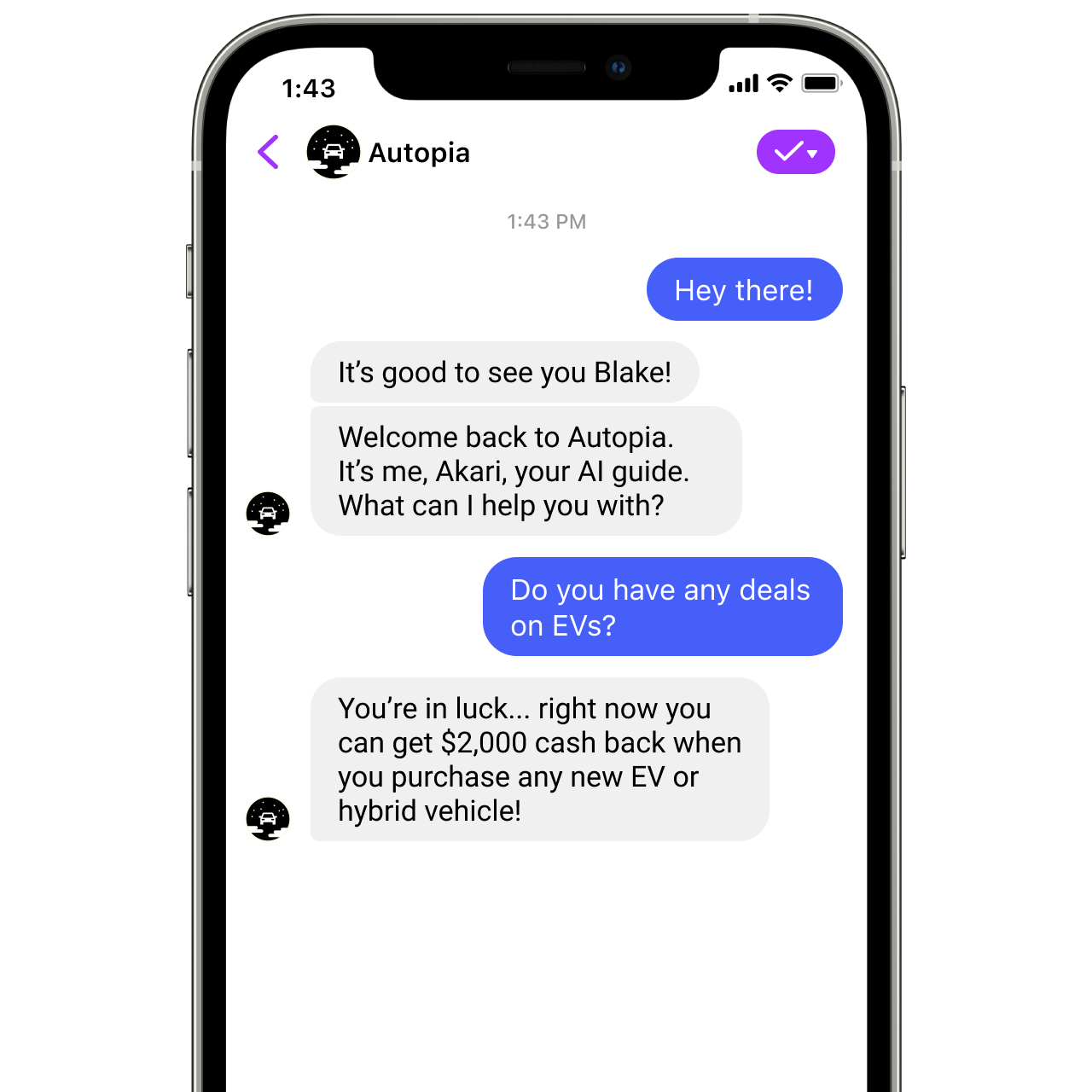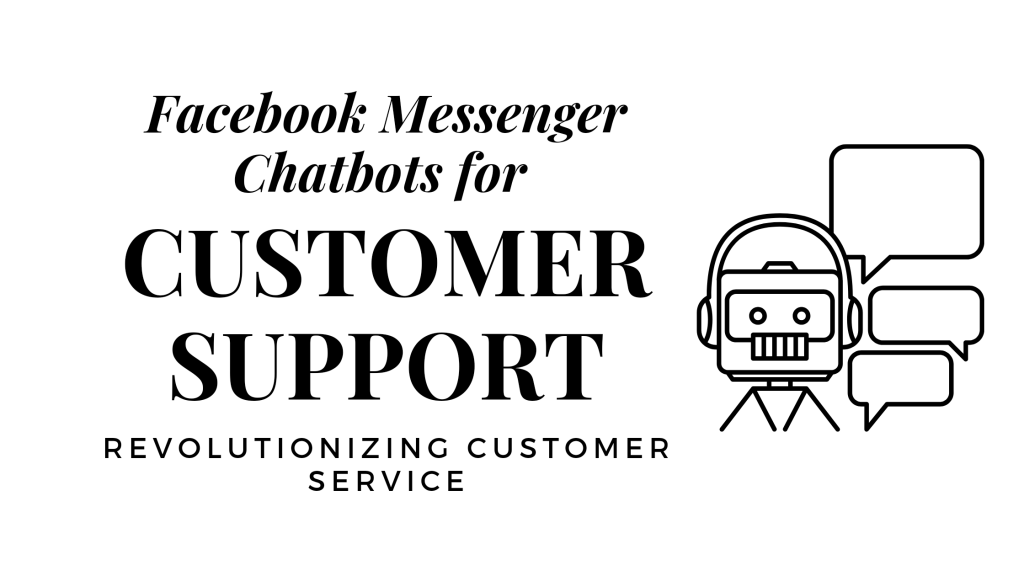In today’s fast-paced digital age, businesses are constantly seeking innovative ways to enhance customer support and engagement.
One powerful tool that has emerged as a game-changer in this realm is Facebook Messenger chatbots.
These automated, AI-driven conversational agents have gained widespread popularity for their ability to provide instant and personalized customer support.
In this article, we’ll explore the world of Facebook Messenger chatbots, their benefits, and how they are revolutionizing customer service.
The Rise of Facebook Messenger Chatbots

Facebook Messenger, with its massive user base exceeding 1.3 billion monthly active users, is a platform where people connect, share, and communicate.
Realizing the potential of this platform for business purposes, Facebook introduced Messenger chatbots in 2016.
Since then, these chatbots have transformed the way businesses interact with their customers.
How Facebook Messenger Chatbots Work
At their core, Facebook Messenger chatbots are computer programs designed to simulate human conversation.
They use natural language processing (NLP) and machine learning algorithms to understand and respond to user queries. Here’s a simplified overview of how they work:
1. User Interaction: A user initiates a conversation with the chatbot by sending a message through Facebook Messenger.
2. Message Processing: The chatbot processes the incoming message using NLP to understand the user’s intent and extract relevant information.
3. Generating Responses: Based on the user’s query and intent, the chatbot generates a response. This response can be in the form of text, images, links, or even interactive elements like buttons.
4. Interaction Continues: The conversation can continue as long as necessary, with the chatbot providing answers, recommendations, or guiding the user through various actions.
5. Data Integration: Chatbots can integrate with databases, CRM systems, and other tools to fetch or update information in real-time, making them powerful for personalized interactions.
Benefits of Facebook Messenger Chatbots for Customer Support
24/7 Availability: One of the standout advantages of chatbots is their round-the-clock availability. They can handle customer inquiries at any time, ensuring that users receive assistance even outside of regular business hours.
Instant Responses: Chatbots provide near-instant responses, reducing customer wait times. This leads to higher customer satisfaction as users don’t have to endure long response times.
Cost-Efficient: Automating customer support through chatbots can significantly reduce operational costs. Businesses can allocate resources more efficiently by using chatbots to handle routine queries, leaving human agents to focus on complex issues.
Scalability: Chatbots can handle multiple conversations simultaneously, making them highly scalable. Whether you have a handful or thousands of customers, chatbots can adapt to the workload.
Consistency: Chatbots deliver consistent responses, ensuring that all users receive the same level of service. This consistency builds trust and brand loyalty.
Personalization: With access to user data and purchase history, chatbots can provide personalized recommendations and solutions, enhancing the overall customer experience.
Analytics and Insights: Chatbots gather valuable data on user interactions, allowing businesses to analyze customer behavior and preferences. This data can be used to refine marketing strategies and improve products or services.
Use Cases of Facebook Messenger Chatbots
Chatbots have found applications in various industries and customer support scenarios. Here are some common use cases:
1. E-commerce: Chatbots assist customers with product recommendations, order tracking, and addressing common e-commerce queries.
2. Travel and Hospitality: Airlines and hotels use chatbots to provide booking assistance, flight information, and hotel reservations.
3. Banking and Finance: Chatbots in the financial sector help users check account balances, make payments, and get information on transactions.
4. Healthcare: Healthcare organizations use chatbots to schedule appointments, provide health tips, and offer symptom checkers.
5. Lead Generation: Businesses use chatbots to capture leads and engage potential customers through automated conversations.
6. FAQ and Knowledge Base: Chatbots can act as virtual assistants, guiding users to relevant information within a company’s knowledge base.
7. Feedback and Surveys: Chatbots collect feedback and conduct surveys to gauge customer satisfaction and gather insights for improvement.
Challenges and Considerations
While Facebook Messenger chatbots offer numerous benefits, there are also challenges to consider:
1. Complex Queries: Chatbots may struggle with highly complex or nuanced queries that require human intervention.
2. User Expectations: Users expect chatbots to understand and respond like humans, which can be challenging to achieve consistently.
3. Data Privacy: Handling user data requires stringent data privacy measures to ensure compliance with regulations like GDPR.
4. Maintenance and Updates: Chatbots need regular updates to stay relevant and effective as user needs evolve.
5. Integration: Seamless integration with existing systems and databases can be complex and time-consuming.
Enhancing Customer Engagement
Facebook Messenger chatbots are not just tools for answering customer inquiries; they are also powerful for engaging customers in meaningful conversations.
Businesses can use chatbots to proactively reach out to customers with updates, promotions, and personalized recommendations.
For example, an e-commerce store can use chatbots to notify customers about flash sales, suggest products based on their browsing history, and even follow up on abandoned shopping carts.
Multilingual Support
In our globalized world, businesses often serve customers from various linguistic backgrounds. Facebook Messenger chatbots can break down language barriers by providing support in multiple languages.
This feature is especially valuable for companies with an international customer base or those looking to expand into new markets.
Chatbots can be programmed to detect the user’s language preference and respond accordingly, making interactions smoother and more accessible.
Integration with Third-Party Services
To further enhance the capabilities of Facebook Messenger chatbots, businesses can integrate them with third-party services and APIs. This opens up a world of possibilities.
For instance, a food delivery service can integrate its chatbot with mapping services to provide real-time delivery tracking. Additionally, chatbots can integrate with payment gateways, allowing users to make purchases or payments directly within the Messenger conversation.
Embracing Conversational Commerce
Conversational commerce is a growing trend where businesses leverage chatbots to facilitate transactions within the chat interface. This not only streamlines the buying process but also provides a seamless and enjoyable shopping experience.
Customers can inquire about products, get personalized recommendations, and make purchases all without leaving the chat window.
As chatbots become more sophisticated, they can even handle complex transactions like booking flights and hotels, further blurring the line between traditional e-commerce and customer support.
The Role of AI and Machine Learning
The intelligence behind Facebook Messenger chatbots comes from AI and machine learning algorithms. These algorithms enable chatbots to continuously improve their performance by learning from interactions.
As more users engage with the chatbot, it becomes better at understanding user intent and delivering accurate responses. AI-driven chatbots can also adapt to changes in language and user behavior, ensuring that they remain effective over time.
User Experience and User Interface Design
Creating a positive user experience (UX) is essential when implementing Facebook Messenger chatbots. User interface (UI) design plays a crucial role in this. The chatbot’s interface should be user-friendly, with clear prompts and easy navigation.
Additionally, businesses can add a touch of personality to their chatbots by giving them a name and a distinct tone of voice, making interactions feel more human and relatable.
Measuring Success
To gauge the effectiveness of Facebook Messenger chatbots, it’s important to establish key performance indicators (KPIs) and regularly analyze chatbot performance.
Metrics such as response time, user satisfaction ratings, and conversion rates can provide valuable insights into how well the chatbot is serving customers. This data-driven approach allows businesses to make informed decisions and fine-tune their chatbot strategies for maximum impact.
The Future of Facebook Messenger Chatbots
As technology continues to advance, the future looks promising for Facebook Messenger chatbots. We can expect to see improvements in natural language understanding, making chatbots even more conversational and capable of handling complex queries.
Additionally, as augmented reality (AR) and virtual reality (VR) technologies evolve, chatbots may extend into these domains, offering immersive customer support experiences.
In conclusion, Facebook Messenger chatbots have emerged as a powerful tool for businesses to revolutionize customer support and engagement.
Their 24/7 availability, instant responses, and ability to provide personalized assistance make them invaluable assets in the digital age.
As businesses continue to innovate and adapt to changing customer needs, chatbots will likely play an increasingly central role in delivering exceptional customer experiences.
Whether it’s answering inquiries, facilitating transactions, or engaging customers in meaningful conversations, Facebook Messenger chatbots are here to stay, reshaping the landscape of customer support.

